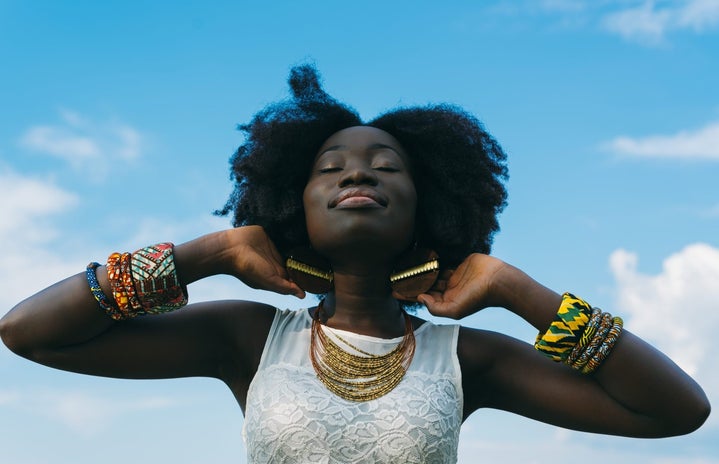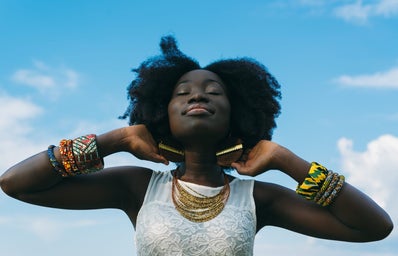One of the most empowering moments you can experience is when you walk out of the salon with a new cut or hair color. Alternatively, it can be one of the most effective ways to ruin your self-esteem if that bold new cut or color doesn’t look the way it did in your imagination.
There’s a lot of power that hair holds, aesthetically speaking, but there’s so much more to it than that.
Hair in the workplace
One thing to understand about hair is that it varies greatly among different demographics. However, the “white” look – straight hair – is subconsciously used as the standard to determine what is considered to be “appropriate” in the workplace.
According to a 2020 study from Duke University’s Fuqua School of Business, Black women that sport their natural hair are less likely to be received professionally by interviewers than their white counterparts with straight hair.
Black hairstyles, such as dreadlocks, afros and twists, are not regarded in the same manner that straight hair is, which has forced many Black women to change their hair for the sake of their career. If they have natural hair, they often risk being fired or not landing an interview at all. However, these hairstyles are used for protective purposes, and frankly, they are beautiful. The notion that only “straight” and “white” hair is acceptable is just a way of policing and limiting expression of culture.
The discrimination against these natural hairstyles is rooted in white supremacy. In the 1700s, Black women in Louisiana inadvertently attracted the white male gaze when they wore their hair in “elaborate styles.” Upon noticing this, the Tignon Laws were passed, which forced Creole women to cover their hair with a tignon – a scarf – to signify that they belonged to the slave class.
In a nation with Eurocentric beauty and professional standards, the system intrinsically deems anything that differs from its requirements as inferior.
The reality is that these hairstyles have a rich history, and to dismiss them as inadequate for career advancement is disrespectful to the person, the race and the culture.
“Relaxing your hair is like being in prison,” said Chimamanda Ngozi Adichie in her novel Americanuh. “You’re caged in. Your hair rules you. You didn’t go running with Curt today because you don’t want to sweat out this straightness. You’re always battling to make your hair do what it wasn’t meant to do.”
What hair means to Native Americans
In the Native American community, hair serves as a symbol for many things, but in summary, it is a vessel of energy.
American Indian Boarding Schools were used in the United States as an institution to “reform” Indigenous peoples’ way of life and model it after the white man’s. The students were children ripped away from their families and whisked away to a school where they were forced to cut their hair and utter not a single word of their home language. Even their names were taken away. The cutting of hair by an enemy symbolized the submission and defeat of a person through means of humiliation.
Erasure of culture, various acts of abuse and whitewashing were the norm at these schools.
Hair means something unique to certain tribes. For example, the Navajo people cut hair as a ritual to mourn the passing of an individual. Meanwhile, the Apache tribe cut hair as a spring ceremony to promote health and prosperity. The bottom line is that the connection to hair is a spiritual and powerful one. It is deeply rooted in Native American culture.
In contemporary society, adorning long hair is a way for the Native American community to proudly wear their resistance to white colonialists’ attempt at killing their culture and their people.
“Long hair is our tradition, our way of life,” said Melissa Oakes, a 38-year-old designer who grew up in the Mohawk tribe. “It’s beautiful. It adds strength to our spirit. A large part of our existence is resistance; the fact that we’re still even here means that we survived a lot. We’re not supposed to be here.”
Hair as a superpower
Hair is unique. Hair is strong. Hair is beautiful.
It means something different to everyone, but the commonality is that it holds great meaning universally. It holds history and culture. It adds confidence and individuality. It protects and nourishes.
There is a reason people get emotional during haircuts – it is a big part of who we are. It can feel like saying goodbye to a limb. The power of hair is unparalleled – otherwise, sanctions against it wouldn’t be so rife in history and contemporary life.
So respect the frizz, the knots and the oiliness that we all hate so much. Your hair deserves it.



